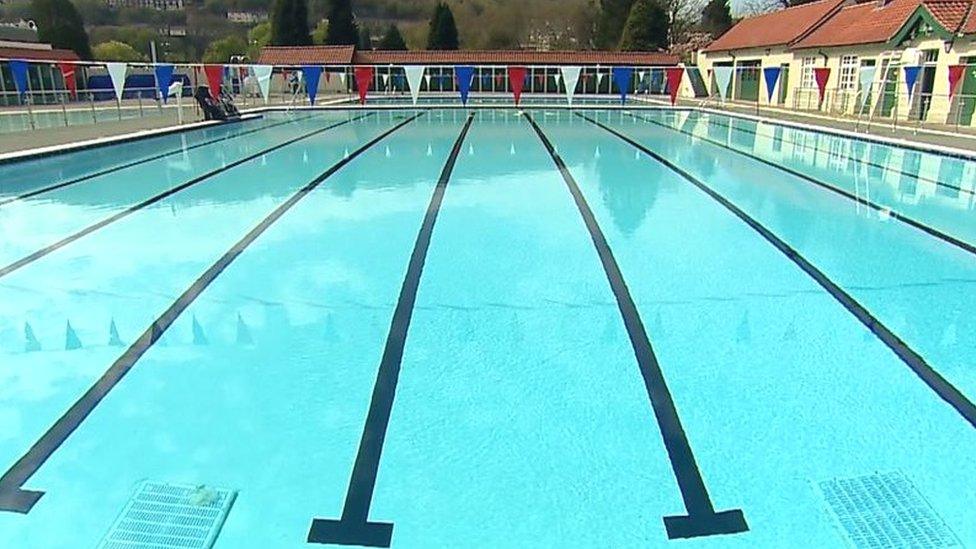Cost of living: Swim Wales warns 150 swimming pools could close
- Published
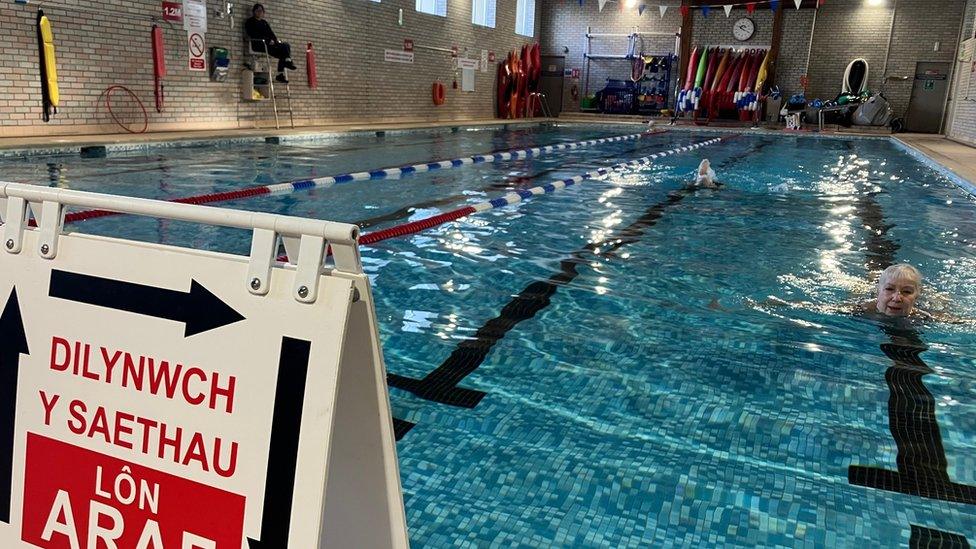
The future of swimming pools like Calon Tysul in Ceredigion depends on financial help, Swim Wales says
Nearly a third of the 500 public swimming pools in Wales could close due to high energy bills, the head of swimming's governing body has warned.
Fergus Feeney, of Swim Wales, said many needed urgent financial help from the Welsh government, and to be included in the UK's energy discount scheme.
He and not-for-profit operator Freedom Leisure said swimming pools should be classified as intensive energy users.
The UK and Welsh governments said they had given significant support to pools.
But a scaling back of the UK government's energy support scheme means the leisure sector is set to lose out.
"It's hugely frustrating that pools haven't been included [in the new scheme]," Mr Feeney said, explaining how museums and libraries will qualify for a higher level of discount on their energy bills from April.
"We don't understand how libraries and museums can be protected and swimming pools, which will take up to five times the energy [to operate], aren't," he said.
"They are energy-demanding facilities, but they play a huge part in the health and wellbeing of our nation," he added.
"We estimate 30% of pools could close without help," he said. "They're the ones really close to the bone. The next 12 months... it's critical that we get financial help."
Mr Feeney said they needed a cash injection from the UK and Welsh governments to cover an estimated shortfall of between £26m and £32m over the next year and "keep the doors open".
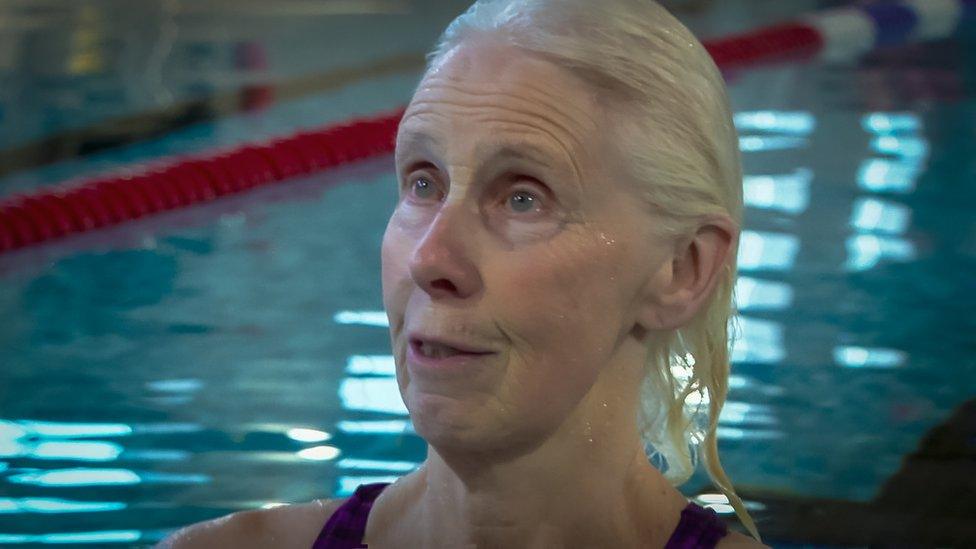
Helen Dunningham says being able to swim means "everything" to her
Calon Tysul is a community run pool in Llandysul, Ceredigion, that has had to cut opening hours and activities after seeing energy costs triple.
"It's mega important it stays open," said Helen Dunningham, who uses the pool regularly.
"I taught my sons to swim here," she said. "Swimming is everything to me.
"It's something you can do when you get older, it keeps you more flexible plus it's so important for children to learn," she added.
"We are near the coast. It's fundamental, like breathing."
Sally Gilham, who swims at Calon Tysul twice a week, said: "I'm extremely concerned about the future of pools.
"It keeps people healthy. I think the government needs to do more to fund places like this," she said. "If they don't have the money to heat the water, they can't operate."
'Absolute disaster'
Swim Wales said the sport was at an all-time high with 100,000 children and 400,000 adults swimming every week in Wales.
"With half a million people aquatically active, pool closures would be an absolute disaster," Mr Feeney added.
Swim Wales has launched a Save our Pools campaign, external, in association with Swim England and Scottish Swimming.
It urged the Welsh government to recognise the vulnerability of pools and offer financial aid above and beyond the final local government settlement.
A trebling of energy bills in 2022 has already led to concerns about the future of many leisure centres.
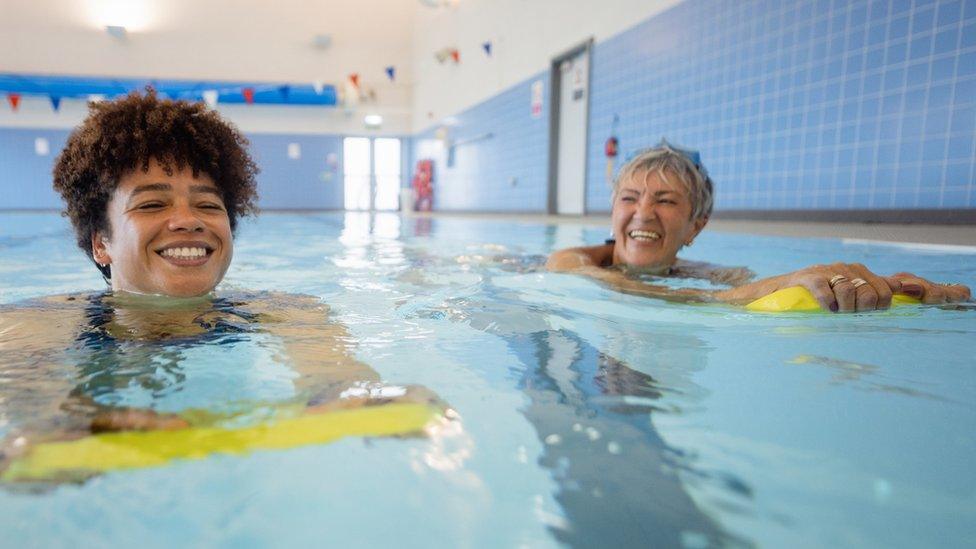
Some pools have already lowered temperatures and raised prices in response to rising energy bills
Not-for-profit organisation Freedom Leisure runs 29 leisure centres on behalf of local councils in Wales, 20 of which have swimming pools.
Jeremy Rowe, operations director, said it would cost an extra £3.5m to run them, even after lowering temperatures and putting prices up.
"We really thought we'd be on the list of energy-intensive users," he said. "We don't know why we haven't been included. We've submitted the evidence to show how intensive [operating swimming pools] is."
The UK government said: "We know our grassroots sports facilities are contending with increases in running costs and we provided an £18bn package of support for organisations such as clubs, pools, leisure centres, schools, charities and businesses through the winter.
"We are investing £260m to build or upgrade thousands of grassroots facilities across the UK," it added.
The Welsh government said it was "doing all it can" to help with energy bills.
"The UK government holds the main levers related to energy costs. We are calling on UK ministers to include leisure centres and swimming pools in its energy bill discount scheme.
"We are also providing £16m of capital funding to Sport Wales over the next two years," it added, "which includes helping upgrade sport facilities with energy saving measures."
- Attribution
- Published10 January 2023
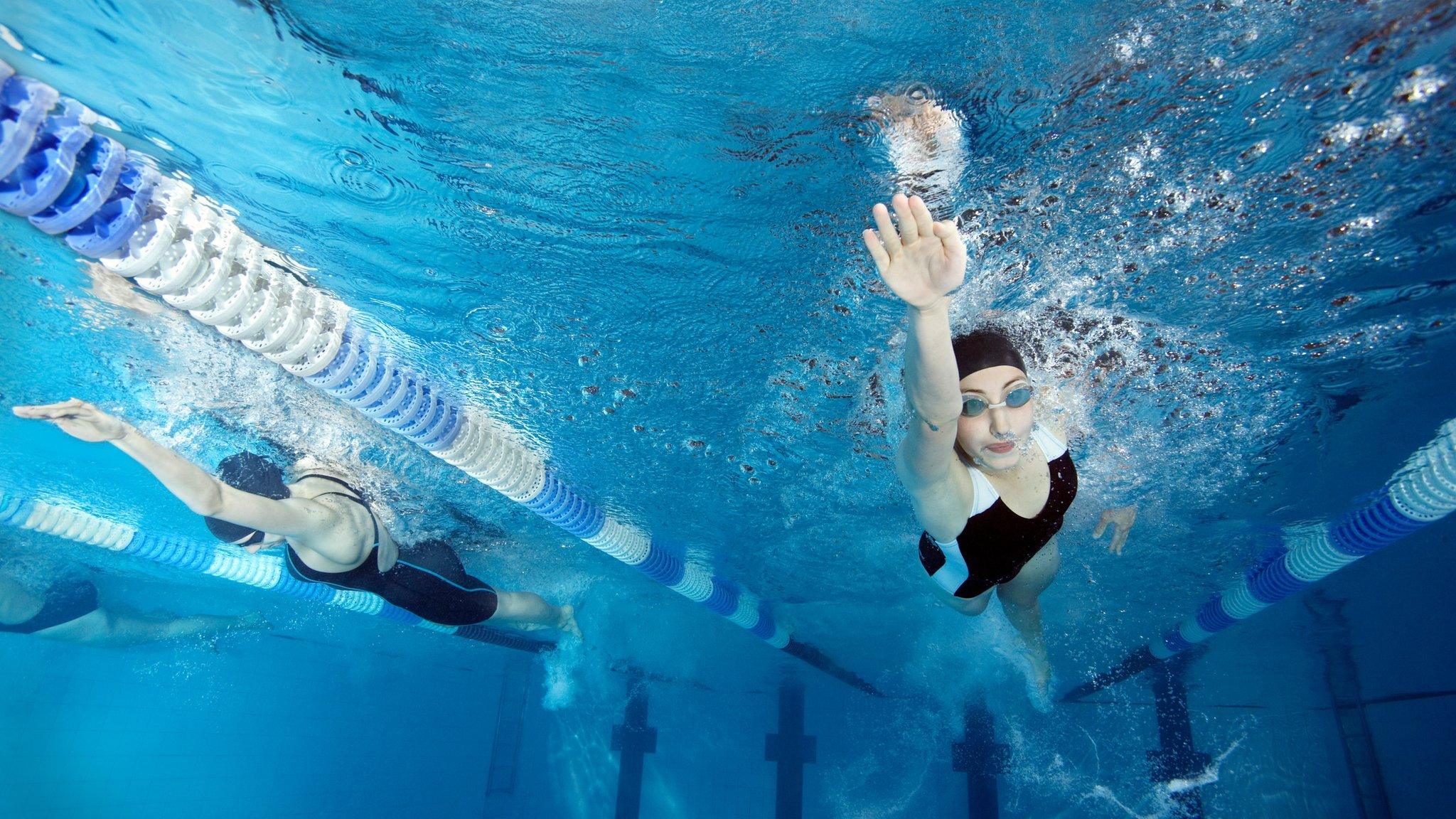
- Published26 June 2022
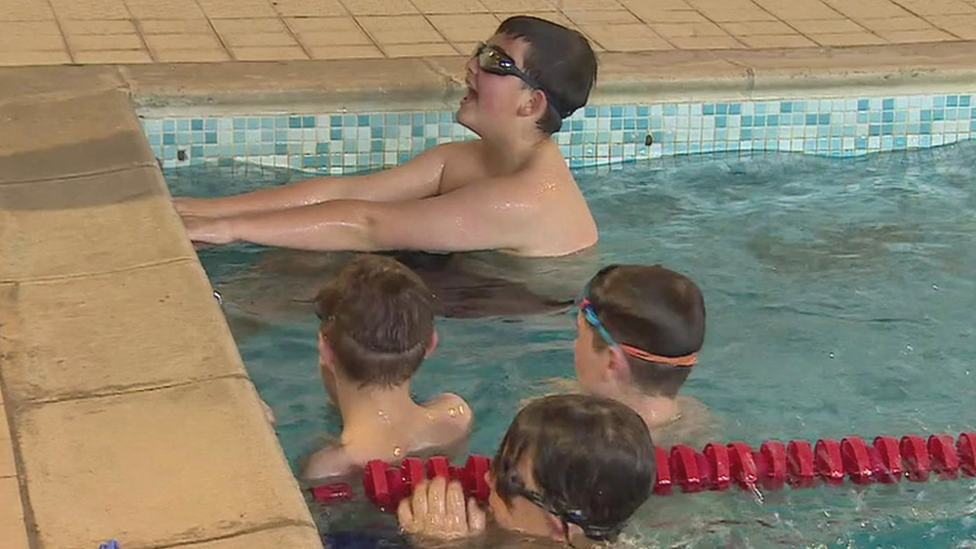
- Published17 December 2022
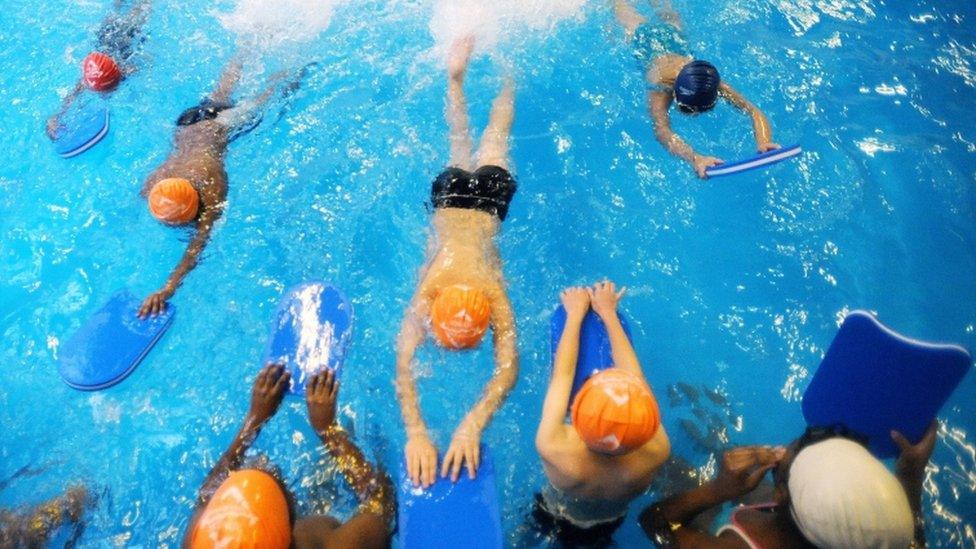
- Published25 May 2021

- Published18 June 2021
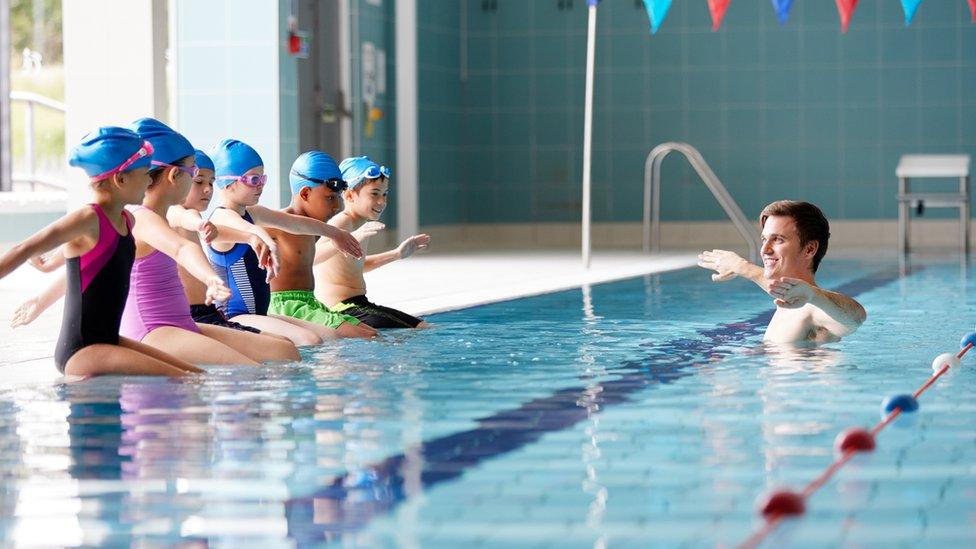
- Published17 October 2021
